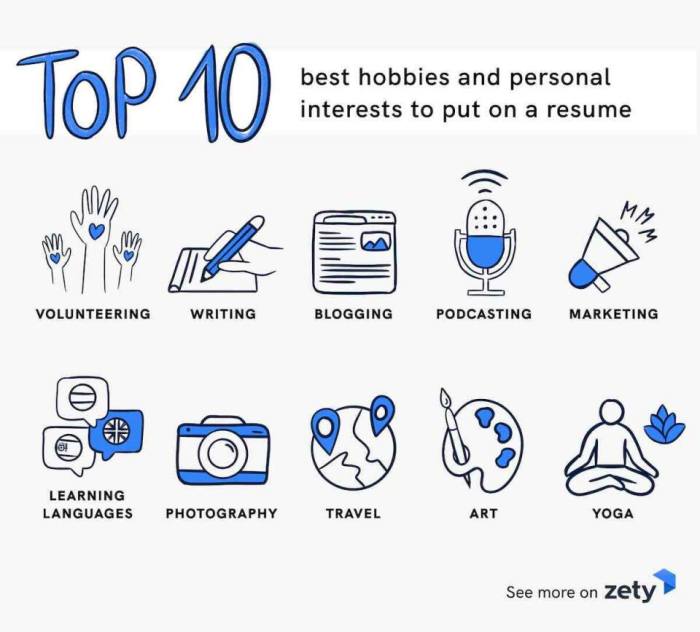Power Hobbies represent more than mere leisure; they’re transformative experiences fostering personal growth, skill development, and profound satisfaction. This exploration delves into the diverse world of power hobbies, examining their psychological benefits, practical applications, and the challenges inherent in mastering demanding pursuits. From creative endeavors to intense physical challenges, we uncover the potential for self-discovery and achievement.
We’ll dissect various hobby categories, detailing the specific skills required and outlining strategies for overcoming obstacles. Further, we’ll explore the unexpected connections between power hobbies and career advancement, demonstrating how passion can translate into professional success. Prepare to discover how dedicating yourself to a challenging hobby can unlock unexpected potential.
Types of Power Hobbies

Power hobbies, unlike casual pastimes, demand significant time, dedication, and often, substantial financial investment. They offer a path to mastery, personal growth, and a deep sense of accomplishment. Understanding the different categories of power hobbies can help individuals choose pursuits aligned with their skills and aspirations.
Categorization of Power Hobbies
Power hobbies can be broadly categorized based on the primary skills and activities involved. The following table Artikels three key categories: Creative, Physical, and Intellectual, each with examples illustrating the diversity within each group.
| Category | Example 1 | Example 2 | Example 3 |
|---|---|---|---|
| Creative | Fine Art (Painting, Sculpture) | Music Composition/Performance | Creative Writing (Novels, Screenplays) |
| Physical | Competitive Bodybuilding | Marathon Running | Advanced Rock Climbing |
| Intellectual | Chess Grandmaster Aspirations | Advanced Programming/Software Development | Professional Level Photography |
Skills and Knowledge Required for Power Hobby Excellence
Success in any power hobby necessitates the acquisition of specific skills and knowledge. The level of expertise required varies greatly depending on the chosen pursuit.Creative power hobbies demand technical proficiency, artistic vision, and often, a deep understanding of art history or theory. For example, a successful painter needs to master color theory, brush techniques, and composition principles. A skilled composer requires musical theory knowledge, instrumental proficiency, and an understanding of musical styles and forms.Physical power hobbies prioritize physical strength, endurance, and technical skill.
Competitive bodybuilding requires meticulous training regimens, dietary discipline, and an understanding of human anatomy and physiology. Marathon running necessitates exceptional cardiovascular fitness, strategic pacing, and injury prevention techniques. Advanced rock climbing demands physical strength, balance, and mastery of climbing techniques.Intellectual power hobbies focus on cognitive abilities, problem-solving skills, and often, specialized knowledge. Aspiring chess grandmasters require strategic thinking, pattern recognition, and extensive knowledge of chess openings and endgames.
Professional software developers need programming expertise, problem-solving skills, and a deep understanding of software design principles. Professional-level photography requires mastery of camera techniques, image composition, and post-processing skills.
Skill Development Progression in a Chosen Power Hobby: Example: Competitive Bodybuilding
The following flowchart illustrates the typical progression of skill development in competitive bodybuilding. The flowchart would begin with a foundational phase focusing on basic weight training techniques and understanding of proper form. This would branch into intermediate training, incorporating more advanced exercises and progressively increasing weight and intensity. This would then lead to an advanced phase involving specialized training programs, nutritional planning, and possibly supplementation. Finally, it would culminate in competition preparation, including meticulous dieting and posing practice. Each phase would involve feedback loops, allowing for adjustments based on progress and setbacks. The entire process is iterative, requiring constant learning and adaptation.
Power Hobbies and Career Development

Power hobbies, those pursuits demanding significant time, skill, and dedication, offer a surprising avenue for professional advancement. The skills honed within these activities often translate directly to the workplace, enhancing resumes, bolstering portfolios, and even providing the foundation for a fulfilling career change. This section explores the synergistic relationship between passionate pursuits and professional success.
The connection between power hobbies and career development lies in the transferable skills they cultivate. Dedication to a demanding hobby demonstrates perseverance, problem-solving abilities, and a commitment to mastering complex tasks – all highly valued attributes in any professional setting. Furthermore, many power hobbies involve collaboration, project management, and creative thinking, skills that are directly applicable to team-based projects and leadership roles.
Leveraging Power Hobbies on Resumes and Portfolios
Effectively showcasing the transferable skills gained from power hobbies requires strategic integration into career materials. Instead of simply listing the hobby, focus on quantifiable achievements and the skills employed. For example, a competitive gamer could highlight their strategic thinking, teamwork, and quick decision-making abilities developed through team-based tournaments. Similarly, a competitive coder could showcase their problem-solving skills and mastery of specific programming languages through participation in coding competitions or open-source projects.
These achievements, when presented effectively, demonstrate a level of commitment and expertise that goes beyond a simple listing of interests. A meticulously crafted portfolio, showcasing projects related to the hobby, can further enhance this demonstration. Imagine an architect showcasing architectural models built as a hobby, demonstrating not just skill but passion and dedication.
Transforming a Power Hobby into a Full-Time Career, Power Hobbies
While not always feasible, transforming a power hobby into a career is a viable path for many. This requires careful planning and a realistic assessment of market demand and personal skills. For instance, a passionate photographer with a strong online presence and a portfolio of high-quality images could transition into freelance photography or open a studio. Similarly, a skilled woodworker could sell their handcrafted furniture online or establish a small workshop.
Success in this transition often involves building a strong online presence, networking within the relevant industry, and acquiring the necessary business acumen. The key is to leverage the skills and passion cultivated through the hobby to create a sustainable and fulfilling career. This often involves initial side-hustle experimentation, gradually building a client base and revenue stream before making the leap to full-time commitment.
Ultimately, the pursuit of power hobbies is a journey of self-improvement and fulfillment. By embracing challenges, honing skills, and building resilience, individuals unlock not only personal growth but also transferable skills applicable to various aspects of life. Whether it’s the meticulous precision of woodworking or the strategic thinking of competitive gaming, power hobbies offer a path to self-discovery, accomplishment, and a richer, more meaningful existence.
The rewards extend far beyond the hobby itself, impacting confidence, problem-solving abilities, and even career prospects. Embark on your own power hobby journey and witness the transformative power of dedicated pursuit.

